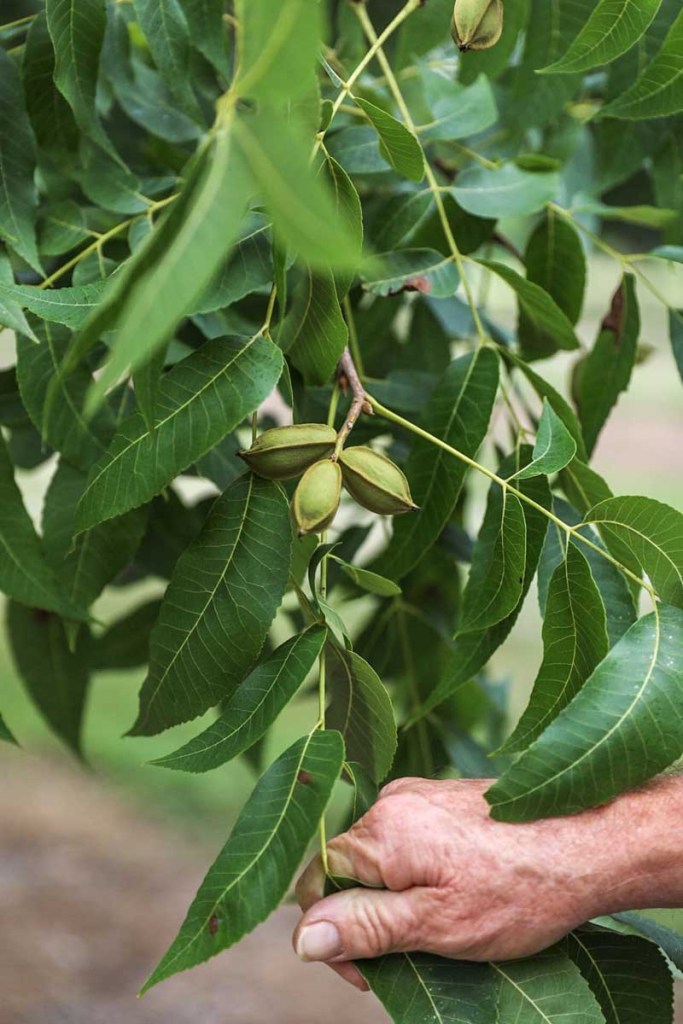Senator’s ‘Freedom to Farm’ bill assaulted by contenders for agriculture commissioner
Published 6:16 pm Monday, October 24, 2022

- Miley Adams, president of the Georgia Pecan Growers Association, is hopeful for this seasons harvest after two years of meticulous tending to his trees after Hurricane Michael destroyed 16% of his crop in Camilla, Georgia.
ATLANTA — Georgia’s Republican candidate for agriculture commissioner was targeted by opponents during an Oct. 17 debate for his lead in passing Georgia’s new “Freedom to Farm Act.”
Trending
Tyler Harper, who currently serves as a Republican state senator, sponsored the bill, which passed along party lines in the Georgia General Assembly this year.
The bill (HB 1150) was created to protect farmers in the state from nuisance lawsuits. It requires that property owners file a lawsuit within two years if bothered by noise, smell or pollutions caused by a new farm or agricultural facility operation. If a lawsuit is not filed within two years, farms would be allowed to legally operate.
Harper said the bill was important to protecting agriculture as Georgia’s No. 1 industry.
“We’ve got to protect family farms and family operations all across the state and in protecting family operations and protecting family farms, we protect consumers across Georgia,” Harper said. “Agriculture is national security and we’ve got to work everyday to ensure that we’re providing them the processes and the regulation in place to allow them to be successful and allow our family farms to be successful.”
Democrat Nakita Hemingway, a realtor and fifth generation farmer, attacked the new law.
“What that Freedom to Farm bill does is it allows allows chicken processing plants to spread industrial waste all over farmland in the state of Georgia, and it is impacting counties throughout the state,” she said.
Trending
Harper, a seventh generation farmer who owns a peanut, cotton, timber and beef cattle operation, responded that the bill received support from agricultural industry and interest groups.
“We’ve got to back the No. 1 industry in the state, and I have the record, the results, the background, the experience and 10 years in the legislature that’s proven that,” he said.
Libertarian candidate David Raudabaugh, however, said big agricultural groups’ support of the bill is not necessarily positive since they typically don’t weigh the best interest of local communities. He voiced support for smaller, family-type farms over industrial farming.
“I just think that we got away from the idea of regenerative farming or permaculture and started getting into more into the mono cropping where we’re sacrificing our soil, our land, and even our health over supplying more crops … instead of saying what is best for me, my community, my people, and that’s why I say I prefer family farms,” Raudabaugh said.
Raudabaugh asked Harper about his involvement with Second Century Ag, a hemp producer in Ocilla, Ga., an area represented by Harper’s senate district. While Harper did not address any ties to the company, he said he plans to make sure hemp is a successful industry in Georgia.
“I’m proud of the fact that we’ve allowed our farmers in this state to have an additional tool in the toolbox, so to speak, an additional commodity we can add to our state’s commodity list and an industry that we can work to ensure that it continues to thrive,” Harper said.
Raudabaugh accused Harper of the giving the company a $3 million loan, and suggested Harper should have focused on legislation making hemp — a class of cannabis grown for industrial or medicinal uses — more available to people. He referenced his background in farming cannabis and selling the crop in states where it’s legal.
“There is no one on this stage that is better suited to let us realize the monetary value and impact that that crop can have on our economy, our health and our ecology,” he said. “If anyone wants to talk about green farming, it has to include what we refer to as industrial cannabis or the word hemp, which is referring to part of the cannabis plant that used in different ways including to heal the environment.”
Hemingway frequently referenced her knowledge in property rights and her business background. She said education is important for attracting more young people into farming. The average age of a Georgia farmer is 58.
“Most people get the perception that a farmer is a white man with overalls on a tractor. We’ve got to change that,” she said. “The first farmers in the United States were African American, dark-skinned like me. So I believe that when we increase education, when we make this a little bit more sexy, and when we show that there’s real opportunity in this space, not for those who have the stereotype, but for intelligent people who are who care about our food system, who care about our environment, who want to be a part of the process and bring change to the state of Georgia.”
Panelists during the Atlanta Press Club debate asked Harper how he planned to help farmers prepare for climate change, which could bring dry spells or heavy rains. He said he would make sure the right policies and regulations are in place, but did not elaborate on any specifics.
As the regulator and monitor of Georgia’s agriculture industry, the agriculture commissioner oversees various agriculture departments including administration, animal industry, food safety, fuel & measures, laboratories, plant industry and marketing.
Early voting began Oct. 17 ahead of Election Day Nov. 8.
Gary Black, current agriculture commissioner, decided not to seek reelection and instead entered the race for Georgia’s U.S. Senate seat. Black, however, lost the Republican primary in May to Herschel Walker.

